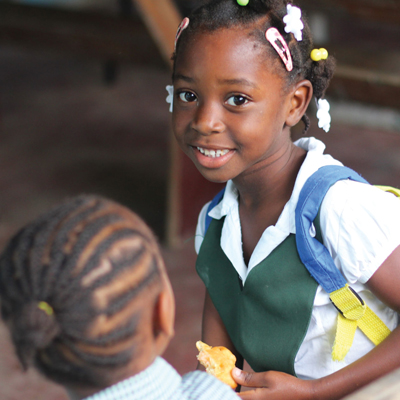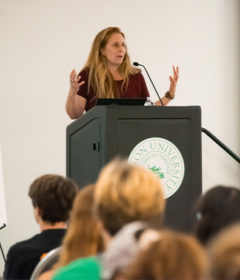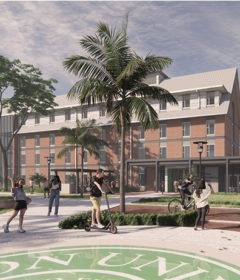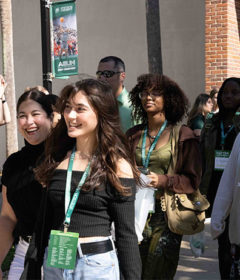Finding social justice in the Caribbean

For most people, the Caribbean is a tropical paradise, a getaway destination where reef fish dart among sunken pirate gold in a boundless turquoise sea. For the people who live and work for equality and human rights in the Caribbean, a different picture emerges: one focused on the struggle for social justice.
Unemployment is rampant. Natural catastrophes like hurricanes have regularly struck the fragile islands. Hundreds of thousands of people died in Haiti in a devastating earthquake in 2010 and many of the survivors remain displaced and homeless, still living in makeshift shelters two years later.
Stetson University College of Law alumni Peterson St. Philippe ‘09, Genevieve Whitaker ‘07, and professors Dorothea Beane and Darryl Wilson are creating opportunities for people to learn about the importance of human rights in the beautiful but troubled Caribbean. Alumna Afia Donkor ‘08, is helping to make a difference for Haitian children in the Dominican Republic. Both Whitaker and St. Philippe have a special connection to the islands, because they are also home.
“I do think that the Caribbean faces very unique historical challenges,” said Whitaker, CEO of The Whitaker Consultant Group, who was born and raised in St. Croix in the U.S. Virgin Islands. Whitaker advocates for juvenile justice and women’s rights in the Caribbean.
“My passion and foundation for human rights were cemented during law school and my experience studying abroad,” said Whitaker who co-founded the Virgin Islands Youth Advocacy Coalition, Inc., where she is helping to educate young people about the importance of civic engagement and to research the oral and written history of social and political events in St. Croix.
“Growing up in Haiti was an experience like no other,” said St. Philippe. “Haiti has been a country cursed by political unrest for the better part of two decades,” with two political coup d’états, schools closing due to violence, and a severe embargo that created inflation of 60-70 percent overnight, St. Philippe recalls.
St. Philippe worked with Gulf Coast Legal Services after graduating from Stetson Law before starting his own immigration law practice in Miami, Fla. At Gulf Coast Legal Services, St. Philippe’s work focused on representing undocumented Haitian immigrants who had been victims of serious crimes. “The work I did at Gulf Coast was the most fulfilling work that I have ever done, and I can’t think of any better way to use my Stetson education,” St. Philippe said
Afia Donkor, now a lawyer in Ontario, Canada, is helping with a school in the Dominican Republic for Haitian refugee children who have no access to education.
“Because of the school, 80 school children have access to opportunities many of us take for granted. They are able to learn, to develop skills, and to understand how to implement their skills to build better futures for themselves and their communities,” Donkor said. “That is priceless.”
“You have to understand how the law can be used to help people including underserved groups like women and children,” said Beane, who co-directs Stetson’s Institute for Caribbean Law and Policy with professor Darryl Wilson. “You have to be clever, tenacious and creative.” Beane has worked extensively in The Hague, Netherlands, on matters involving international criminal law and human rights.
You can read the full story, written by Valeria Obi and Brandi Palmer, in SU magazine online.



